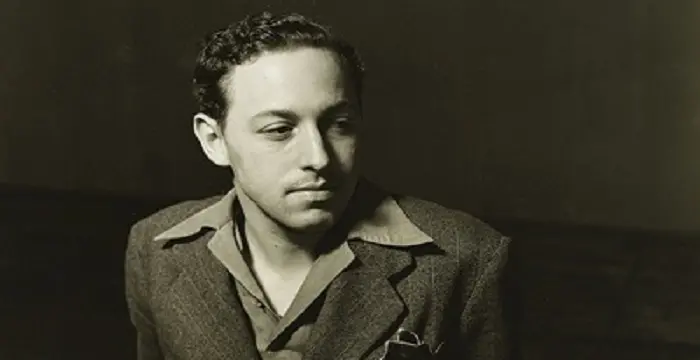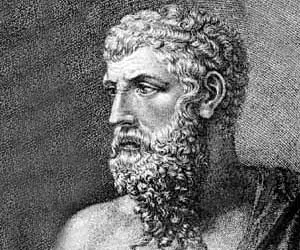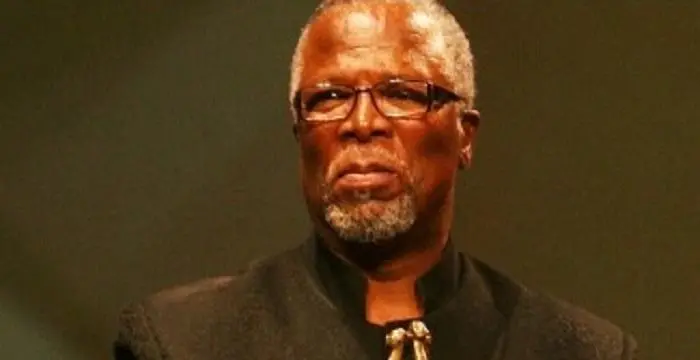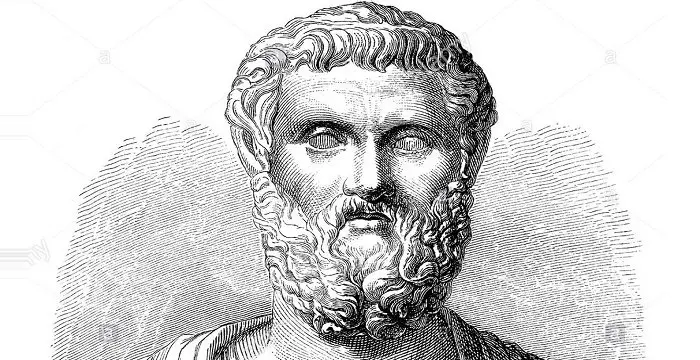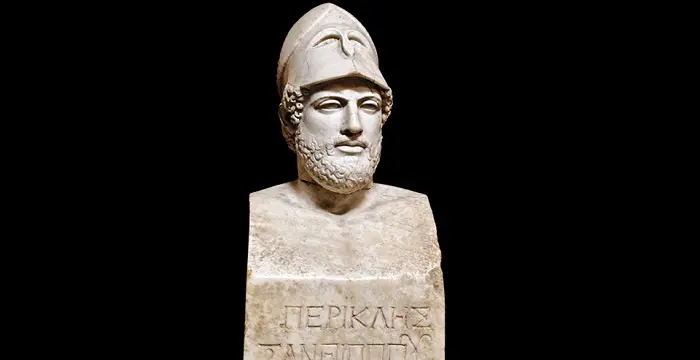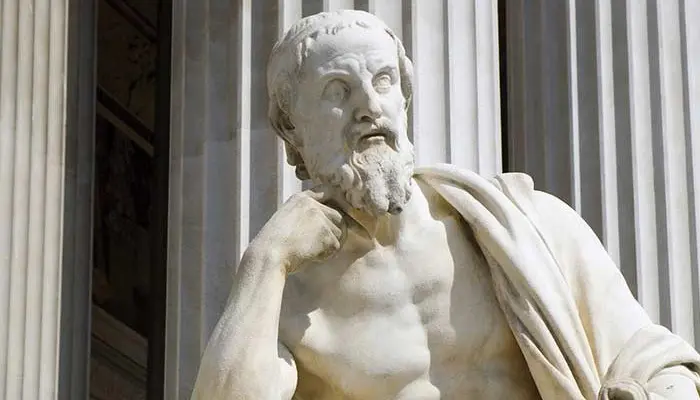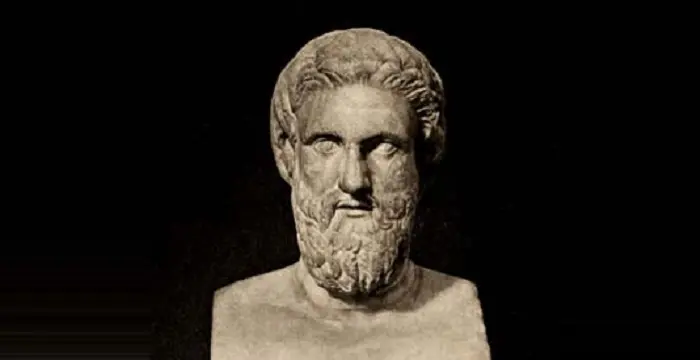
Aristophanes - Writers, Career and Childhood
Aristophanes's Personal Details
Aristophanes was an ancient Greek comic playwright and poet also known as the Father of the Comedy
| Information | Detail |
|---|---|
| Birthday | 444 BC |
| Nationality | Greek |
| Famous | Writers, Playwrights |
| Birth Place | Classical Athens |
| Gender | Male |
| Father | Philippus |
| Born in | Classical Athens |
| Famous as | Playwright |
| Died at Age | 59 |
// Famous Writers
Joyce Meyer
Joyce Meyer is a Christian author and speaker. This biography provides detailed information about her childhood, life, achievements, works & timeline
Temple Grandin
Temple Grandin is a well-known American writer, autistic activist and animal expert. This biography profiles her childhood, life, achievements, career and timeline
Tennessee Williams
Tennessee Williams was one of the greatest playwrights of the 20th century. This biography of Tennessee Williams provides detailed information about his childhood, life, achievements, works and timeline.
Aristophanes's photo
Who is Aristophanes?
Aristophanes was an acclaimed Greek comic playwright and poet. Among his originally written forty plays, only eleven are still extant. These, along with fragments of some of his other plays, provide the real evidences of a genre of comic drama known as Old Comedy. Aristophanes is also popularly known as the Father of Comedy and the Prince of Ancient Comedy. It was believed that Aristophanes recreated the life of ancient Athens more convincingly than any other author. Even the influential contemporaries like Plato acknowledged his powers of ridicule. Some of his important extant plays are The Acharnians (425 BC), The Knights (424 BC), The Clouds (423 BC), The Wasps (422 BC), Peace (421 BC), The Birds (414 BC), Lysistrata (411 BC), The Frogs (405 BC) and Wealth II (388 BC).
// Famous Playwrights
Tennessee Williams
Tennessee Williams was one of the greatest playwrights of the 20th century. This biography of Tennessee Williams provides detailed information about his childhood, life, achievements, works and timeline.
John Kani
John Kani is a South African actor, voice actor, playwright and director. Check out this biography to know about his birthday, childhood, family life, achievements and fun facts about him.
Samuel Beckett
Samuel Beckett was an Irish playwright, novelist, theatre director and poet. This biography profiles his childhood, life, works, achievements and timeline
Biography detail
Aristophanes Childhood & Life
There is not much information available about Aristophanes. The major sources of information about him are his plays. Son of Philippus, of the deme Cydathenaus, Aristophanes was probably born around ca. 446 BC. There is no certainty about the exact location of his birth. He was a comic poet in the times when it was normal for a poet to assume the role of 'teacher'. Even though this is specifically referred to his training of the Chorus in rehearsal, it also described his relationship with the audience as a commentator on significant issues. Aristophanes often flaunted his originality as a dramatist, but his plays consistently followed opposition to radical new influences in Athenian society. He caricatured leading figures in the fields of art, politic and philosophy such as Euripides, Cleon and Socrates. These caricatures imply that Aristophanes was an old-fashioned conservative. It is said that he mainly wrote the plays for entertaining the audience and to win prestigious competitions. These plays, produced at the great dramatic festivals of Athens, the Lenaia and City Dionysia, were judged and ranked amongst the relative works of other comic dramatists. For most part of his career, the Chorus played a pivotal role in his play's success. The Chorus was recruited and financed by a choregus, a wealthy citizen appointed to the task by one of the archons. Even though a choregus would consider his personal expenditure on the Chorus as a civic duty and a public honor, Aristophanes showed in “The Knights” that wealthy citizens accept civic responsibilities as punishment imposed on them by demagogues and populists like Cleon.
At the time of the production of his first play “The Banqueters”, Athens was an ambitious, imperial power and The Peloponnesian War was only in its fourth year. His plays expressed pride in the achievement of the older generation but were not jingoistic and staunchly opposed to the war with Sparta. In his plays, Aristophanes heavily criticized war profiteers especially the populists like Cleon. In 427 BC, his first play “The Banqueters” (now lost) helped him to win second prize at the City Dionysia. He again won the first prize there with his next play, The Babylonians (also now lost). It was very common for foreign dignitaries to attend the City Dionysia and his play, “The Babylonians” caused some embarrassment for the Athenian authorities since it had described the cities of the Athenian League as slaves grinding at a mill. Some influential citizens, particularly Cleon, accused the play for slandering the polis and possibly a legal action was taken against Aristophanes. There are no recorded details about the trial. Aristophanes repeatedly attacked Cleon in his later plays. But these satirical fulminations were ineffective to cause any harm on Cleon's political career. Even after the production of “The Knights”, a play full of anti-Cleon jokes, Cleon was elected to the prestigious board of ten generals. However, Cleon seemed to have had no real power to limit or control Aristophanes or his plays. As such, the latter kept on producing caricatures of Cleon even after his death.
Based on the combined resources of the two plays, “The Knights” and “The Clouds”, it was believed that Aristophanes didn’t direct the first three of his plays, and instead, these were directed by Callistratus and Philoneides. Based on the comments made by the Chorus on behalf of Aristophanes in “The Clouds”, it have been interpreted that he was not more than 18 years old when he wrote his first play, “The Banqueters”. Also, it is believed that Aristophanes was probably victorious at least three times at the Lenaia, with “Acharnians” in 425, “The Knights” in 424, and “The Frogs” in 405. “Frogs” even held the unique distinction of having a repeated performance at a subsequent festival. By the time Aristophanes wrote his last play around 386 BC, Athens had been defeated in war and its empire had been broken apart. Subsequently, Athens underwent a transformation from the political to the intellectual centre of Greece. Aristophanes was a significant part of this transformation and shared in the intellectual fashions of the period. Aristophanes’s son, Araros was also a comic poet and was heavily involved in the production of his father's play “Wealth II” in 388. Araros is also said to be responsible for the posthumous performances of the now lost plays “Aeolosicon II” and “Cocalus”. Probably, the last play won the prize at the City Dionysia in 387. It is also believed that his second son, Philippus, won twice at the Lenaia and probably directed some of Eubulus’ comedies.
Plato's “The Symposium” can be considered as a useful source of biographical information about Aristophanes but its reliability is uncertain. For instance, it describes the recorded conversations of a dinner party at which both Aristophanes and Socrates are guests. This party was held some several years after the performance of “The Clouds”, the play in which Socrates was cruelly caricatured. One of the guests at the party, Alcibiades, teased Socrates over his appearance referring to some quotes from the play but still there were no signs of ill-feeling between Socrates and Aristophanes. Plato had described Aristophanes as a genial person. But Plato was only a boy at the time of the events in “The Symposium” and there were likely chances that his character of Aristophanes is based on reading of the plays. Aristophanes survived The Peloponnesian War, also the two oligarchic revolutions and the two democratic restorations, hence it can interpreted that he was not actively involved in politics despite his highly political plays. It is said that he was appointed to the Council of Five Hundred for a year at the beginning of the fourth century but such appointments were very common in democratic Athens. There are not any reliable details available about the exact location and time of his death. But it was believed that he died around 386 BC.
// Famous Greek peoples
Solon
Solon was an Athenian lawmaker, poet and politician. He is considered as one of the ‘Seven Wise Men’ in Greek culture. This biography provides detailed information about his childhood, life, career, works, achievements and timeline.
Pericles
Pericles was an important Greek statesman, orator, patron of the arts, politician, and general of Athens who lived from 495–429 B.C. Check out this biography to know about his childhood, life, achievements, works & timeline.
Herodotus
Herodotus was a Greek historian widely referred to as 'The Father of History'. This biography of Herodotus provides detailed information about his childhood, life, achievements, works & timeline.
Aristophanes's FAQ
When was Aristophanes died?
Aristophanes was died at 2020-04-14
Where was Aristophanes died?
Aristophanes was died in Athens
Which age was Aristophanes died?
Aristophanes was died at age 59
Where is Aristophanes's birth place?
Aristophanes was born in Classical Athens
What is Aristophanes nationalities?
Aristophanes's nationalities is Greek
Who is Aristophanes's father?
Aristophanes's father is Philippus
How famous is Aristophanes?
Aristophanes is famouse as Playwright


